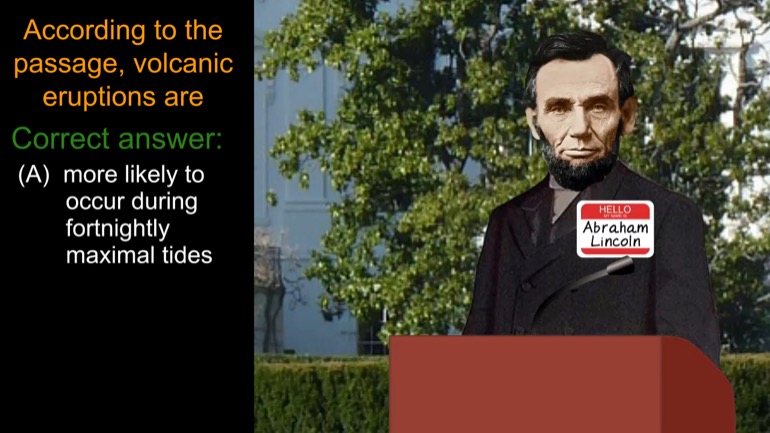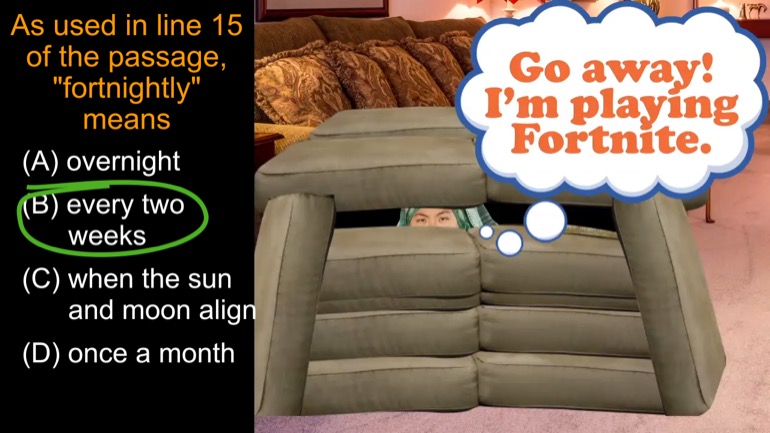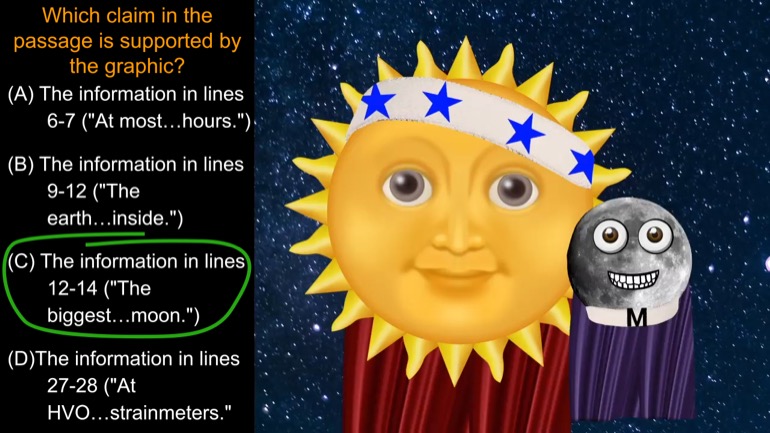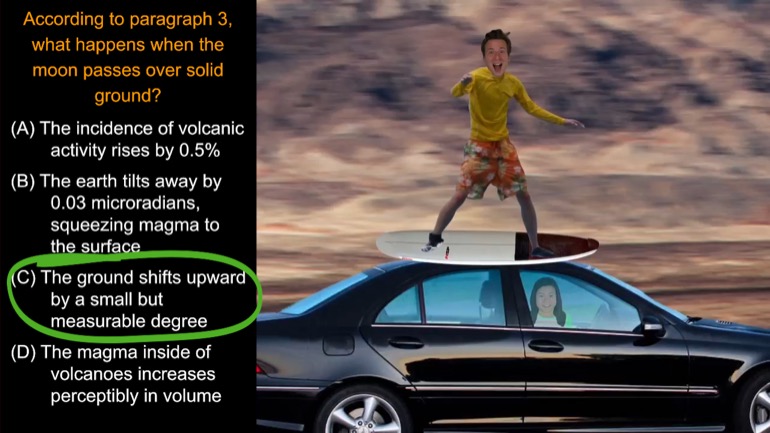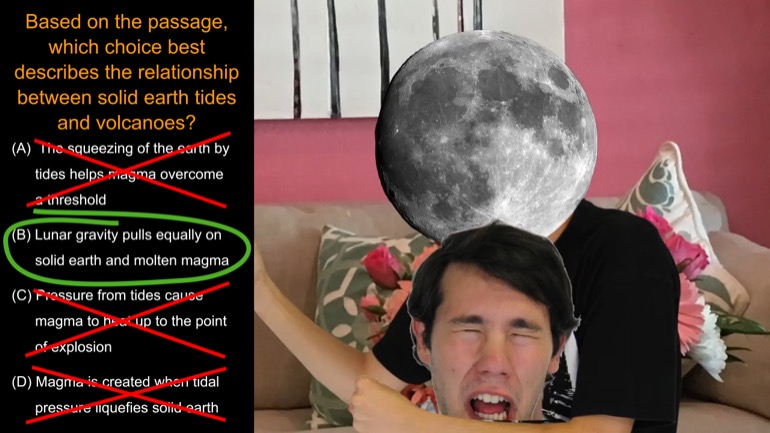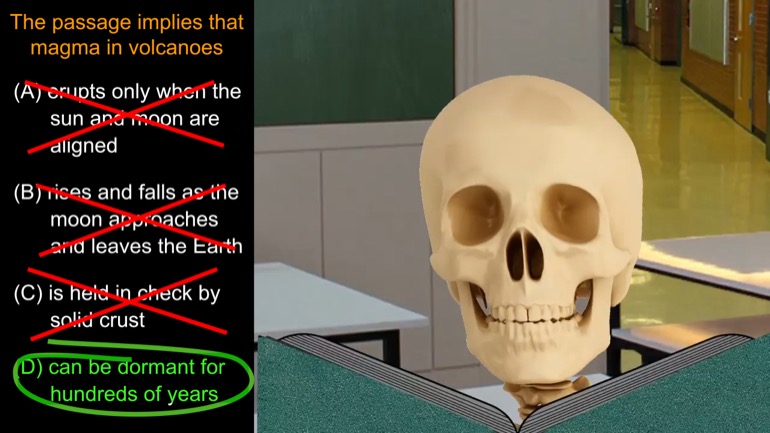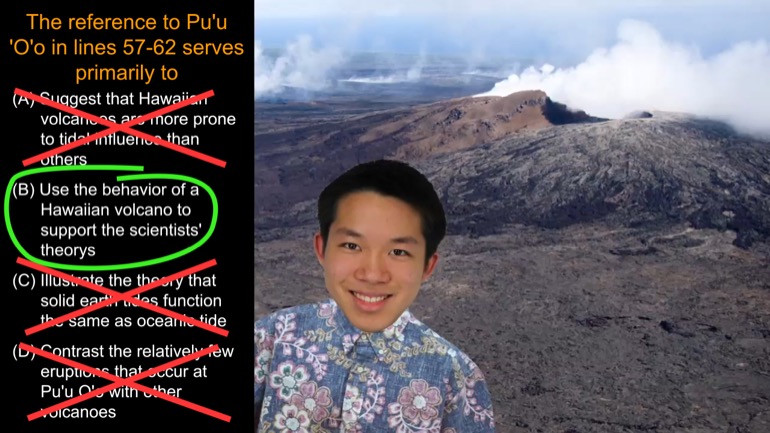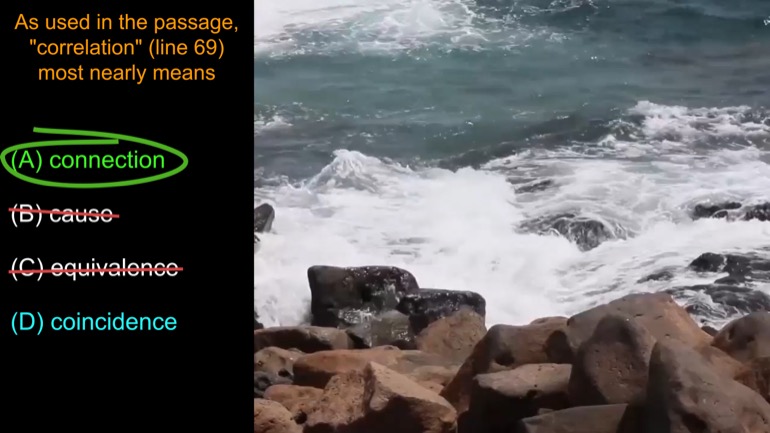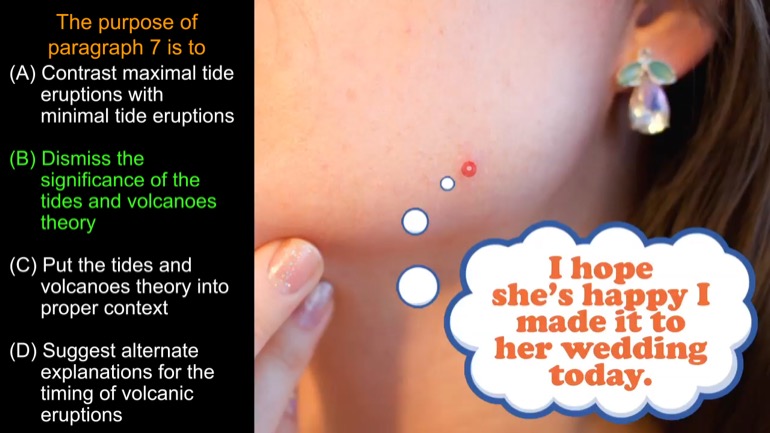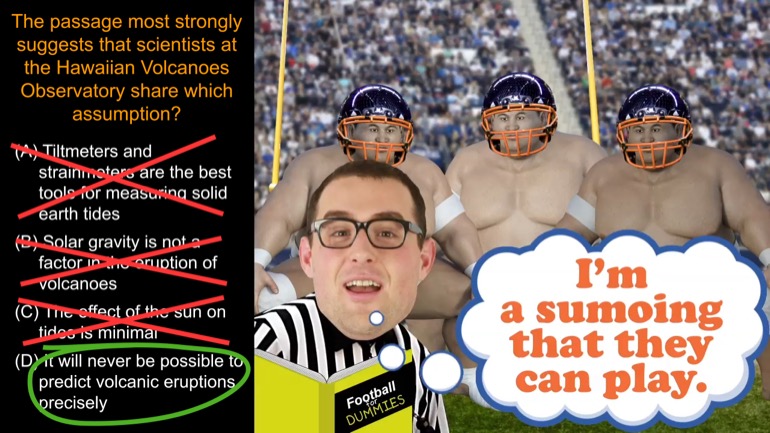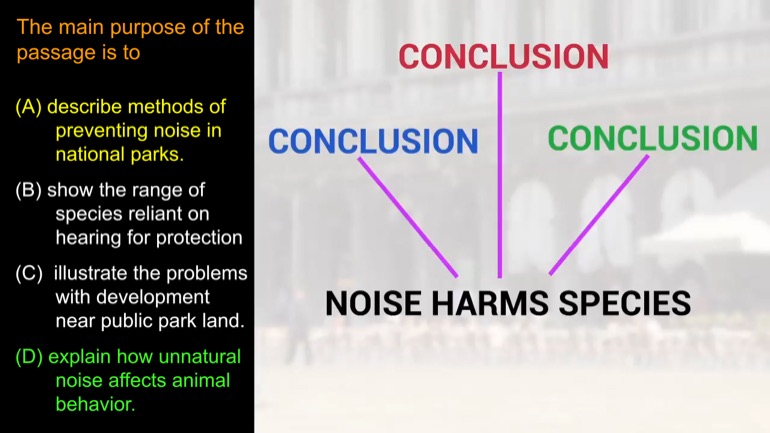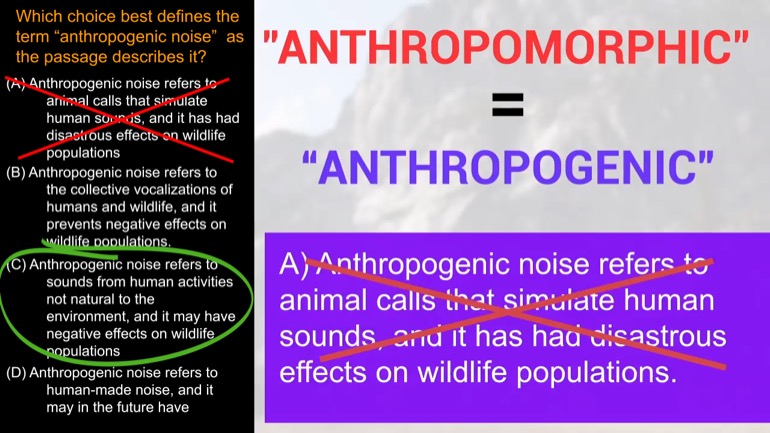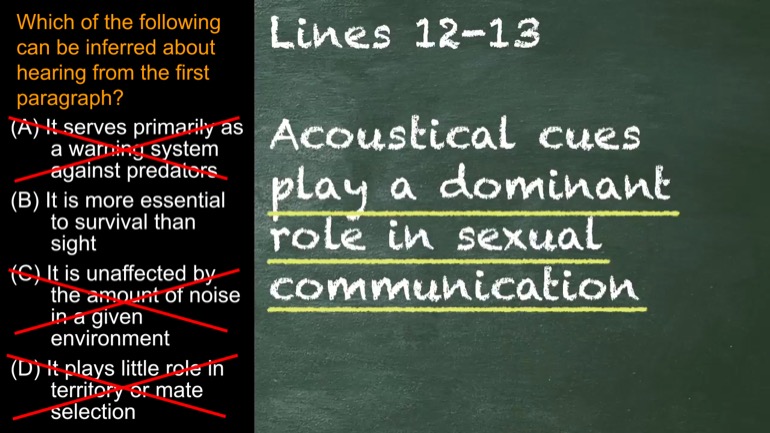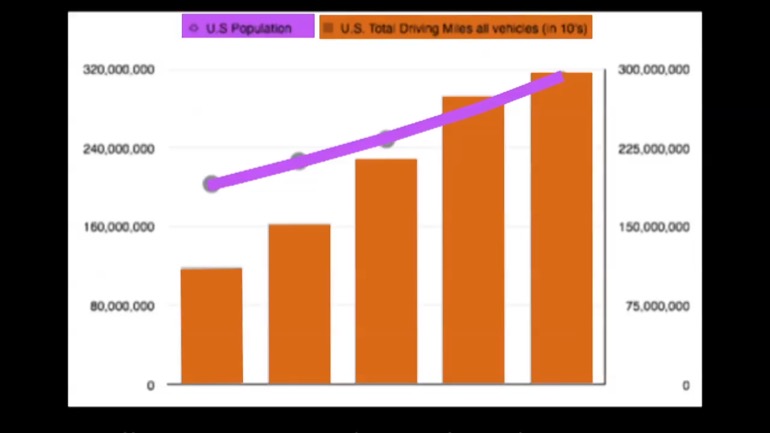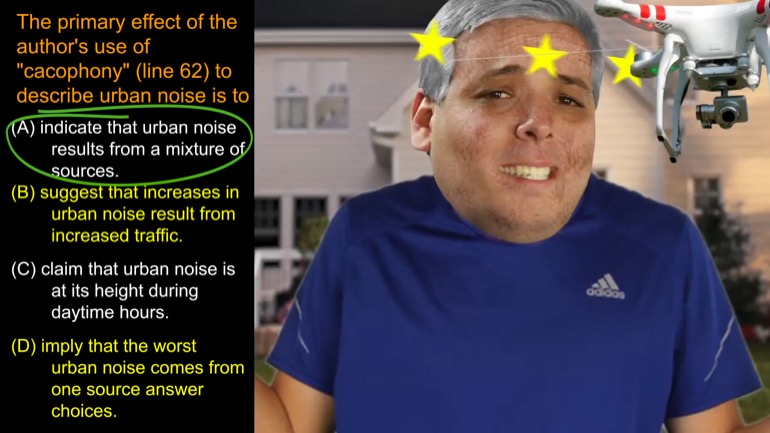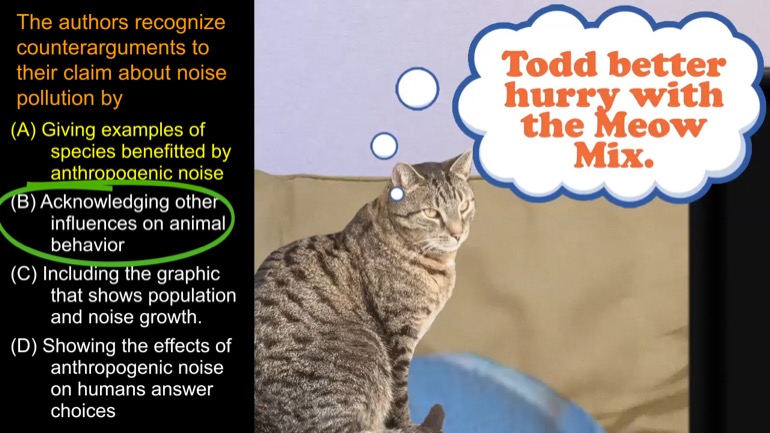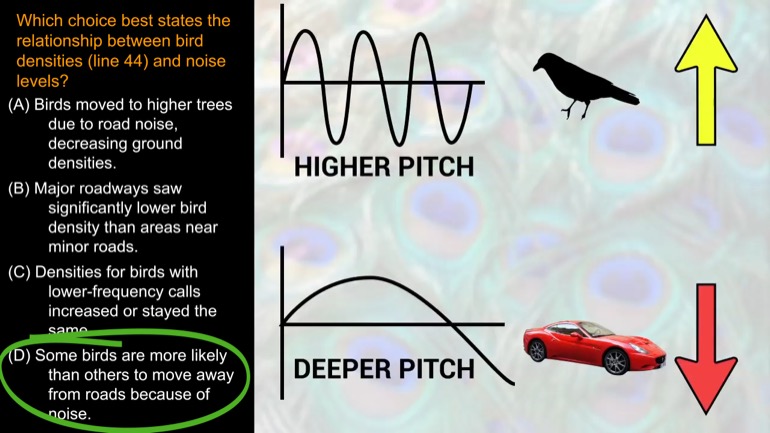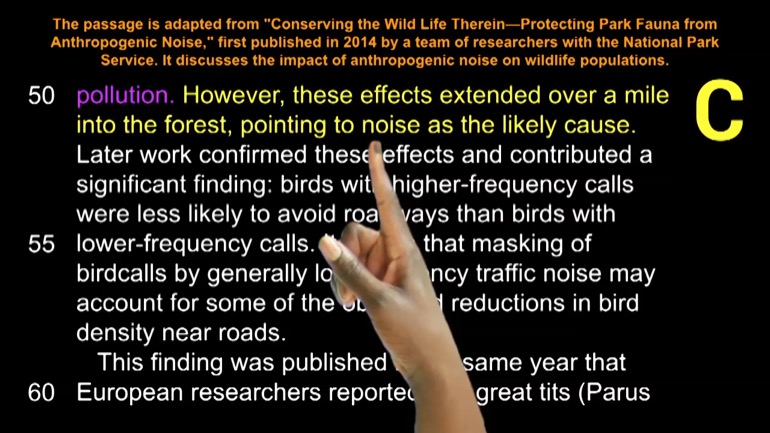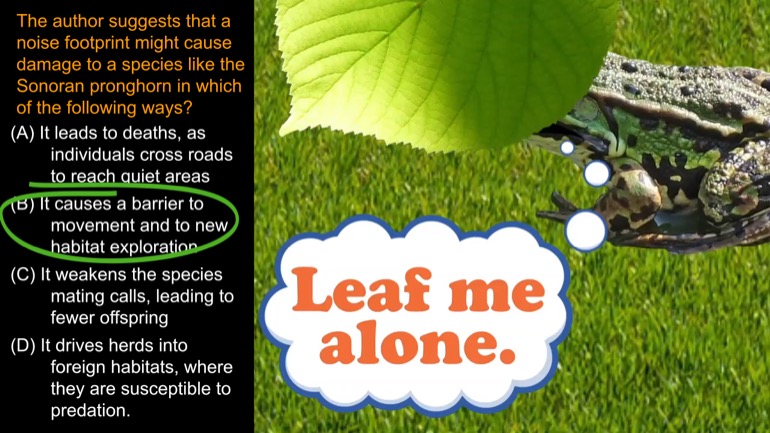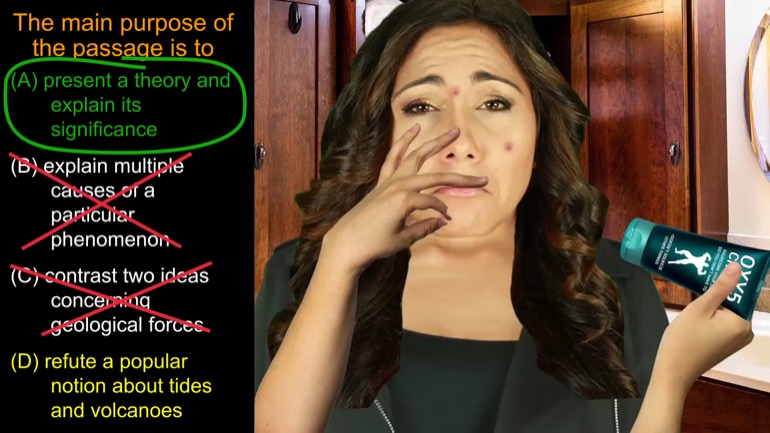ShmoopTube
Where Monty Python meets your 10th grade teacher.
Search Thousands of Shmoop Videos
Science Passage Videos
Play All
How are Volcanos tied to the moon? Tidal Lunacy is more about Hawaii and surfing than were wolves but don't take our word for it...find out more by...
Want to know what fortnight means? Spoiler alert: no, it isn't when you build a fort in your living room out of cushions.
Analyzing texts and volcanos...it's the last video in this short but sweet SAT Reading volcano series.
Does the moon create lava tides? We can actually measure the moon's effects on volcanoes. How insanely cool is that? If we can do all this, then wh...
Tides and volcanos go hand in hand. But how? Watch this SAT Reading video to find out more!
Liquid hot magma! Learn more about it in this volcano-themed SAT Reading video.
Tidal Lunacy continues to intrigue, so we must analyze it some more in this SAT Reading video.
What is correlated with the word correlation in this video's SAT reading passage? Watch to unravel the mystery!
What is the purpose of a paragraph? What is the purpose of life? Jk, but this SAT Reading video will at least help you analyze the purpose of the f...
Who doesn't want to learn more about Volcanos in the SAT Reading video? They're the gigantic pimples of the earth!
This SAT Reading video discusses the impact of anthropogenic noise on wildlife populations. At least for once they're having you read something int...
Next up in SAT Reading is the topic of anthropogenic noise and its impact on wildlife.
This SAT Reading video has you inferring something in the first paragraph. Such life skills!
In this SAT Reading video you'll have to summarize information in a graph. We promise it's not too math-y!
The world "cacophony" is entirely underrated. However, the author in this SAT Reading passage has the opportunity to use it. Click play to find out...
It's important to know how to recognize counterarguments to a claim. This SAT Reading video covers just that - how handy.
Ok more love fest with the animals in this SAT Reading video. Roar!
This SAT Reading video talks about bird densities and noise levels. We promise it's not a biology lesson.
The Sonoran pronghorn has sensitive ears. Wanna know more? Watch this SAT Reading video on noise pollution.
This sci-fi passage is about what? We pick out keywords and phrases and glean that it's about a single theory: Maximal tides squeeze Earth like it'...
This SAT Reading video on wildlife conservation has you looking into the word "exacerbate".
How does anthropogenic noise impact predator-prey interactions? Watch the SAT Reading video to find out.
